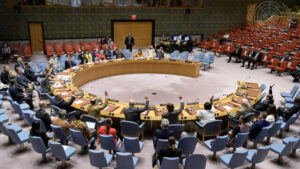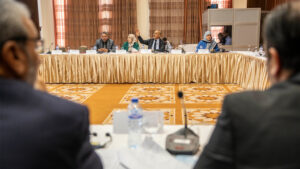Backlash is rising against the press statement published by the UN SG’s Special Advisor on Solutions to Internal Displacement, which addressed the situation of Internally Displaced Persons (IDPs) in Libya.
In its response to the Adviser’s statement, the IDPs of Benghazi Association declared it was surprised that the UN advisor published information that did not represent the reality of the country’s internally displaced, as he did not take into account the IDPs from the eastern region, who represent the overwhelming majority of IDPs in Libya. The IDPs of Benghazi Association stated that the figures included in the statement of the UN Special Adviser on IDPs are inaccurate and did not include the real number of displaced people in the country.
The Association further explained that the figures mentioned in the Adviser’s statement are completely different from estimates of the United Nations High Commissioner for Refugees (UNHCR), calling for the statement’s figures to be corrected.
The organization indicated that criticisms by different stakeholders regarding the accuracy of the figures published by the Adviser, which do not refer to the IDPs of the eastern region, illustrate the importance of the issue, due to its impact on understanding the Libyan humanitarian and political situation, especially that of which is related to the national reconciliation program and its relevant projects.
The IDPs of Benghazi Association stressed the need for the publication to include IDPs from the eastern region, especially Benghazi as the largest number of IDPs in the country is from the city, in addition to the fact that their issue is of special importance due to the history of their displacement and the challenges they face. It further emphasized that accuracy and impartial information must be taken into consideration when addressing the problem of internal displacement in the country to ensure stability, transitional justice and human rights.
The UN SG’s Special Advisor on Solutions to Internal Displacement, Robert Piper, had claimed in a press statement that the number of IDPs in Libya has decreased to about 50,000, alleging that most were from Tawergha and Murzuq.
Piper mentioned that progress of 80% was made in solving the problem of IDPs in Libya since late 2020, as the UN had taken a number of measures, including promoting social integration and reconstruction in conflict-affected areas. However, he did not address the displaced people of Benghazi, despite the UN Fact Finding Mission (FMM) stating in its 2023 report that the largest group of IDPs in Libya came from Benghazi.





